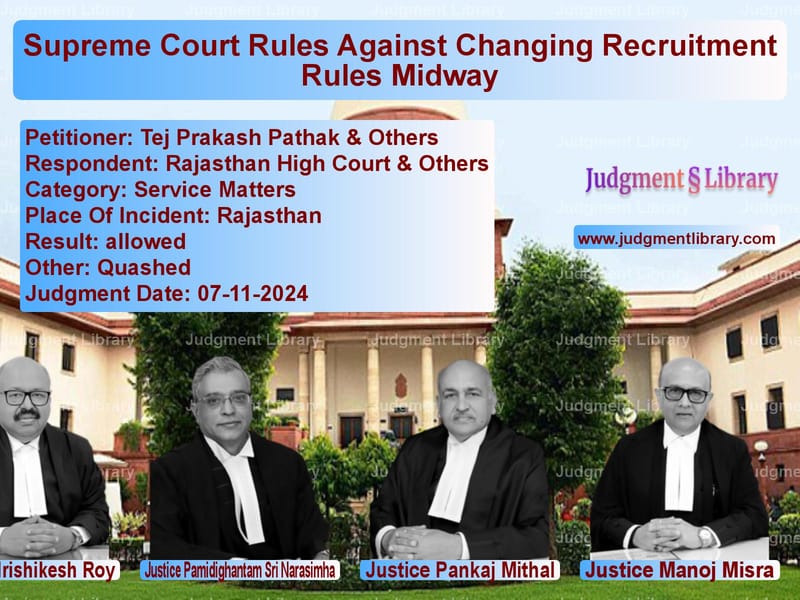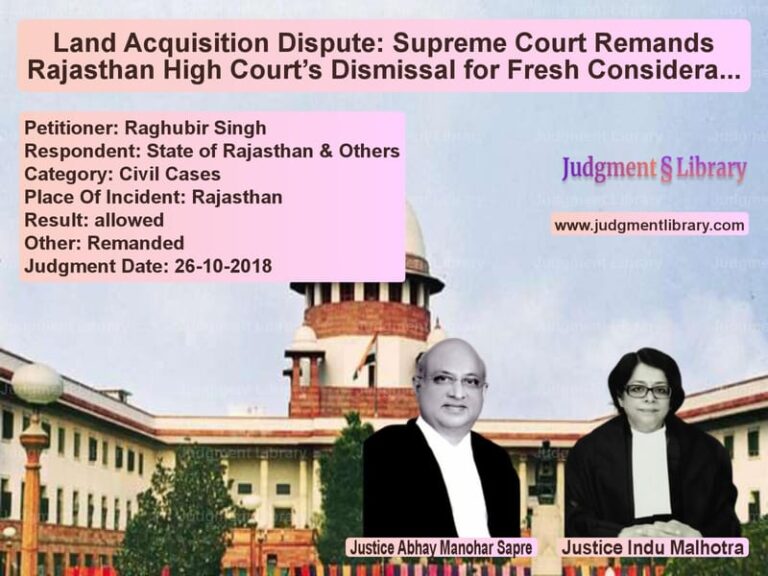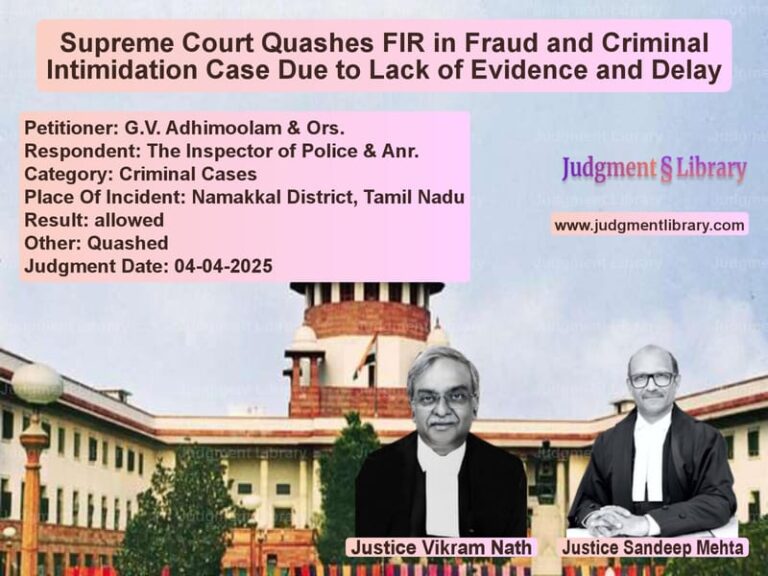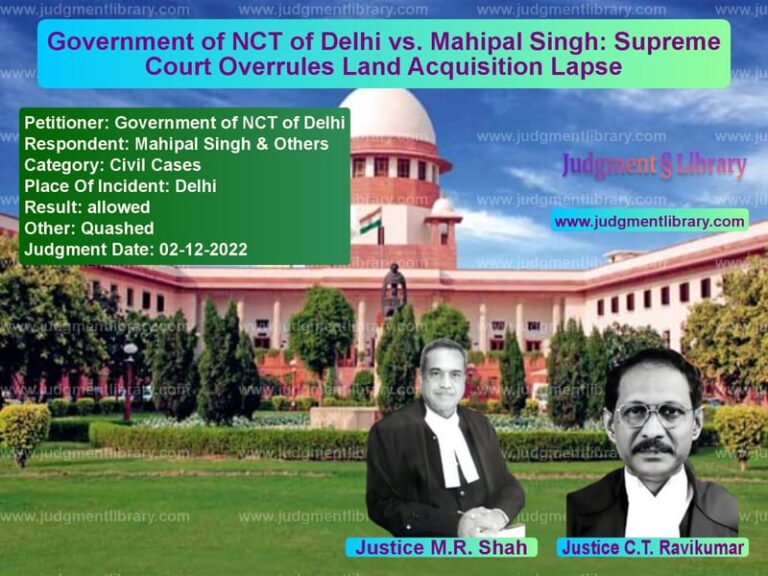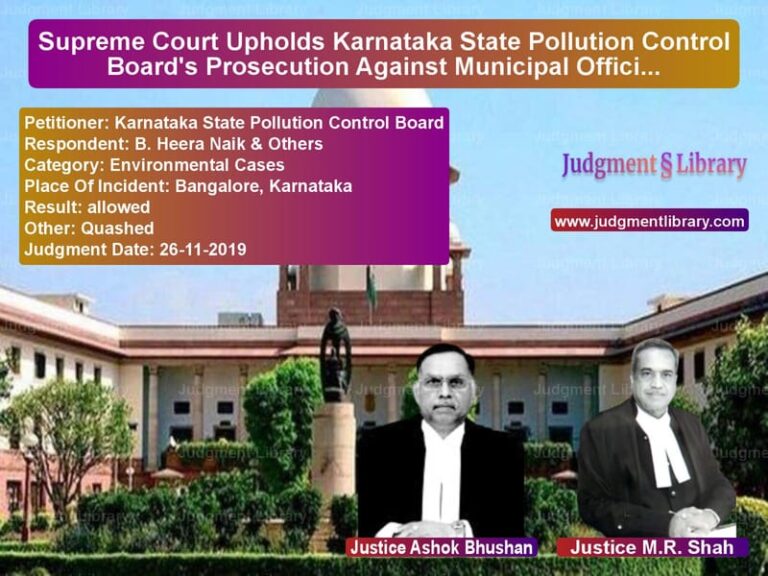Supreme Court Rules Against Changing Recruitment Rules Midway
The Supreme Court of India, in a landmark judgment, has ruled that recruitment rules cannot be altered midway or after the recruitment process has begun, reaffirming the principle that “the rules of the game must not be changed once the game has started.” The case, Tej Prakash Pathak & Others v. Rajasthan High Court & Others, arose from a recruitment dispute concerning the appointment of translators in the Rajasthan High Court.
Background of the Case
The Rajasthan High Court invited applications for the post of Translators in September 2009. The eligibility criteria required candidates to have three years of experience as Judicial Assistants or Junior Judicial Assistants, along with a postgraduate degree in English Literature. A selection test was held, and 21 candidates appeared.
Read also: https://judgmentlibrary.com/reinstatement-of-uppcl-technicians-supreme-court-overturns-termination/
However, after the examination was conducted, the Chief Justice of the Rajasthan High Court imposed a new minimum qualifying mark requirement of 75%, which was not mentioned in the initial recruitment notification. This decision resulted in only three candidates qualifying for the post. Aggrieved candidates challenged this change, arguing that the eligibility criteria should not be altered after the process had begun.
High Court’s Ruling
The Rajasthan High Court dismissed the challenge, ruling that the Chief Justice had the authority to introduce new qualifying criteria in the interest of selecting the most competent candidates. The High Court justified this decision by asserting that being placed on a select list does not confer an automatic right to appointment.
Supreme Court’s Observations
On appeal, the Supreme Court analyzed the legal principles governing recruitment in public employment and made the following key observations:
- Public employment must adhere to the principles of fairness and equality enshrined in Articles 14 and 16 of the Constitution.
- Changing eligibility criteria or selection benchmarks after the recruitment process has commenced violates candidates’ legitimate expectations.
- The practice of “changing the rules of the game after it has started” fosters arbitrariness and goes against the fundamental principles of transparency.
- While an employer has the discretion to set selection criteria, any changes must be made before the process begins, not during or after.
- The decision in K. Manjusree v. State of A.P. (2008) was reaffirmed, holding that imposing new minimum interview marks after the selection process is complete is impermissible.
Key Arguments by the Parties
Petitioner’s Arguments (Tej Prakash Pathak & Others):
- Introducing a 75% qualifying mark post-examination was arbitrary and unfair.
- Changing recruitment rules mid-process deprived eligible candidates of equal opportunity.
- The eligibility criteria at the time of advertisement should be final and binding.
Respondent’s Arguments (Rajasthan High Court & Others):
- The Chief Justice had the authority to introduce new selection criteria to ensure merit-based recruitment.
- Being on the select list does not guarantee appointment.
- The decision to raise the cutoff was taken in good faith to maintain high standards.
Supreme Court’s Final Judgment
The Supreme Court ruled in favor of the petitioners and held:
- The recruitment process begins with the issuance of a notification and ends with the final appointments.
- Eligibility criteria and selection procedures cannot be changed after the process has commenced.
- The decision of the Rajasthan High Court to introduce new cut-off marks post-examination was unconstitutional and must be quashed.
- Recruiting bodies must adhere to pre-defined rules to ensure transparency and fairness.
Impact and Significance
This ruling has far-reaching implications for public employment and recruitment processes across India. It upholds the fundamental principles of equality and fairness in government hiring and prevents arbitrary changes that could disadvantage candidates. The judgment reinforces that once a recruitment process begins, it must proceed strictly in accordance with the initially declared rules.
Conclusion
The Supreme Court’s decision in this case establishes a crucial precedent in recruitment jurisprudence. It ensures that candidates are assessed based on pre-determined standards and prevents authorities from making arbitrary changes that could distort fair competition. The ruling serves as a strong safeguard against executive overreach and upholds the integrity of public employment processes.
Petitioner Name: Tej Prakash Pathak & Others.Respondent Name: Rajasthan High Court & Others.Judgment By: Justice D.Y. Chandrachud, Justice Hrishikesh Roy, Justice Pamidighantam Sri Narasimha, Justice Pankaj Mithal, Justice Manoj Misra.Place Of Incident: Rajasthan.Judgment Date: 07-11-2024.
Don’t miss out on the full details! Download the complete judgment in PDF format below and gain valuable insights instantly!
Download Judgment: tej-prakash-pathak-&-vs-rajasthan-high-court-supreme-court-of-india-judgment-dated-07-11-2024.pdf
Directly Download Judgment: Directly download this Judgment
See all petitions in Employment Disputes
See all petitions in Recruitment Policies
See all petitions in Public Sector Employees
See all petitions in Promotion Cases
See all petitions in Disciplinary Proceedings
See all petitions in Judgment by Dhananjaya Y Chandrachud
See all petitions in Judgment by Hrishikesh Roy
See all petitions in Judgment by P.S. Narasimha
See all petitions in Judgment by Pankaj Mithal
See all petitions in Judgment by Manoj Misra
See all petitions in allowed
See all petitions in Quashed
See all petitions in supreme court of India judgments November 2024
See all petitions in 2024 judgments
See all posts in Service Matters Category
See all allowed petitions in Service Matters Category
See all Dismissed petitions in Service Matters Category
See all partially allowed petitions in Service Matters Category

